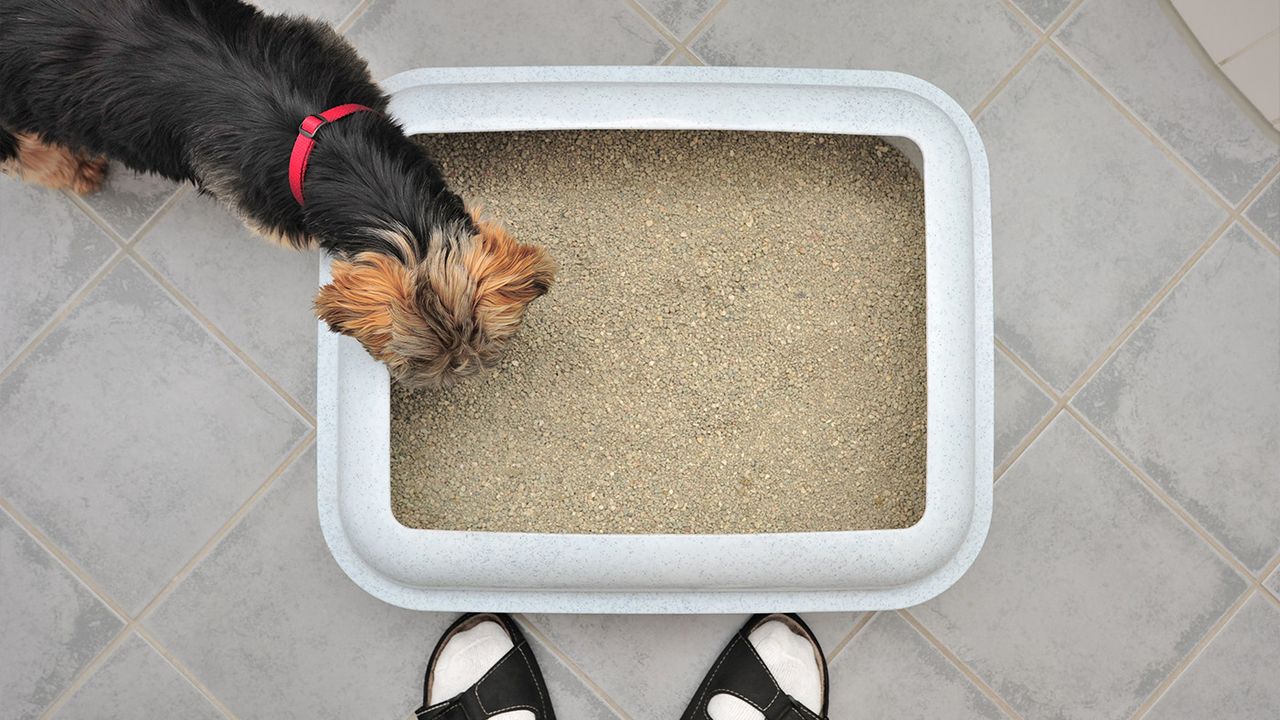
There are a few circumstances where you might be left wondering how to litter train a dog. While it’s not common practice – like house training a puppy – as it’s recommended that you take dogs outside to go to the toilet outside, if your dog has mobility issues, is recovering from injury or illness, or lives in a high-rise apartment, training them to use a litter box might be useful.
The good news is, it's not as tricky as you might think, as Dr Rebecca MacMillan explains.
How to litter train a dog
1. Select the right litter box
The first thing you want to do is choose a litter box. It sounds like a simple enough purchase, but you'll definitely want to do your research. Likewise, you’ll need to look into appropriate litter for dogs.
"You must get the right-sized box to fit your dog otherwise it will make training more difficult and urine spillages could occur," explains Dr MacMillan
2. Introduce your dog to the litter box
Dr MacMillan says that introductions to any litter box need to be done slowly, with lots of the best dog treats on hand that you can use to reward your pup for sniffing or showing interest in the litter box.
"When they are happy you can then try and encourage them to enter it," she says.
3. Establish a routine
Consistency is crucial when it comes to getting your dog to use their litter box.
"Start as you mean to go on and establish a toileting routine, for example by taking your dog to their box first thing in the morning or after a meal," Dr MacMillan advises.
4. Use positive reinforcement
Positive reinforcement is so important when it comes to litter box training.
"If your dog toilets in the box, then make sure to reward them with a treat and praise to reinforce the behavior," says Dr MacMillan.
5. Be patient and consistent
Using a litter box may not come naturally for some dogs, especially if they have previously toileted outside. Dogs also learn at different rates and some breeds are easier to train and may take more quickly to using a litter box than others.
"Remain patient and never punish them for any accidents as it could lead to anxiety," Dr MacMillan explains.
Edited by Megan Milstead.
This page was last updated in July 2025 by Kathryn Williams.







